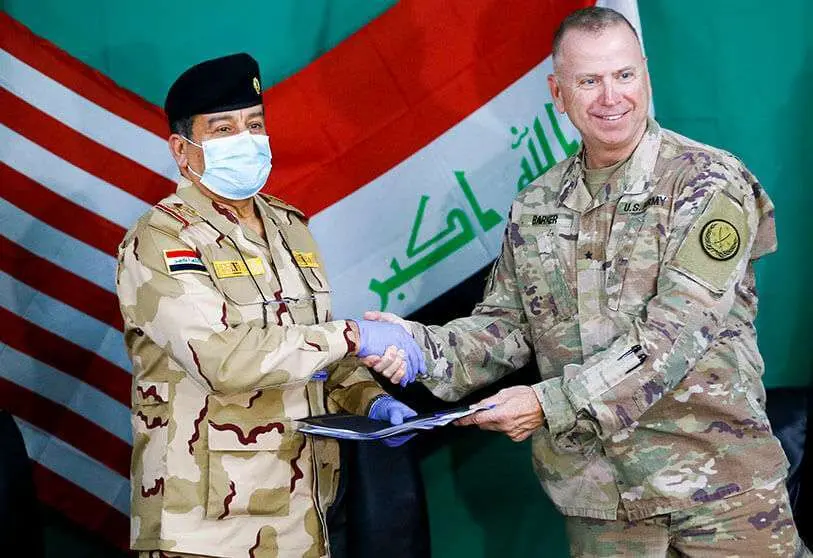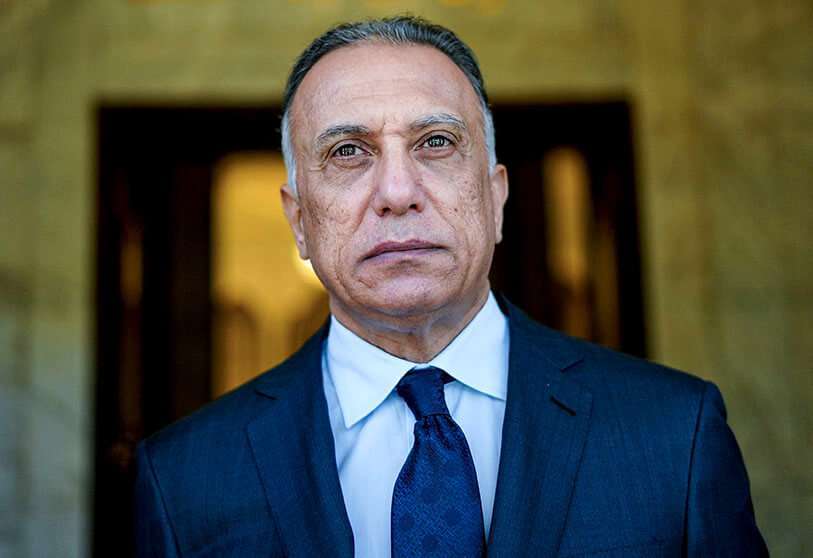New U.S.-Iraqi talks to agree on troop reductions on the ground

The United States and Iraq have resumed talks this Thursday after months of tense relations between the two, according to AFP news agency. The experts consulted by the press agency predict that these contacts will not involve important changes, but they will consider the reduction of troops on the ground. This dialogue has been promoted by the new prime minister, the former head of intelligence Mustafa al-Kazemi, considered a man close to Washington and his Arab allies.
"The United States-Iraq relations are not going to be redefined from one day to the next, but this time we have the right people in the right place at the right time," explained Robert Ford, a researcher at the Middle East Institute, in statements to the AFP agency.
The talks, which began with an initial session this Thursday afternoon with a debate on measures to deal with the coronavirus, are expected to continue for several months, according to the Associated Press. Iran's growing influence in Iraq will also be one of the highlights during the talks.
More than two and a half years after the "victory" over the jihadists, thousands of U.S. soldiers are still deployed in the country. After some thirty rocket attacks against the Americans, and after the assassination in January by Washington of the Iranian general Qassem Soleimani and his Iraqi lieutenant in Baghdad, the feeling of rejection against the United States among the population has shot up, according to the AFP agency

Iraqi Shiite MPs voted to expel the foreign soldiers and the U.S. responded with threats of attacks on paramilitary sites. The arrival of al-Kazemi has changed the situation. He has taken over the leadership of a country in the midst of an economic crisis and with a citizenry that demands justice for the 550 protesters killed in the repression of an unprecedented people's revolt. Unlike his predecessor Adel Abdel Mahdi, who was never invited to Washington, Kazimi could be received at the White House this year, two government officials told AFP.
"There was a problem of trust with the previous government, but that has now changed," says one government official. One of the main issues discussed at the meeting is the US presence in Iraq. The coalition led by the United States only has three bases in the Middle Eastern nation. "We do not know in detail the number of American soldiers, the United States' proposal will be a reduction of troops on the ground," an Iraqi official told AFP.
It is unlikely that there will be a drastic departure of soldiers, since the jihadist threat persists, according to the rest of the members of the coalition, who have been very attentive to these talks in which they have not participated. "The non-US members of the coalition will stay in Iraq only if the Americans stay," one diplomat told AFP.
The economic crisis caused by COVID-19 has directly impacted Iraq due to the collapse in the price of a barrel of oil. The country is trying to guarantee the reconstruction contracts agreed with the Americans. The authorities also seek to close deals with the Gulf countries and the World Bank to receive aid.

Iran's allies in Iraq are also keeping a close eye on the country's new talks with the United States, although they will not participate. Ahmed Asadj, spokesman for his parliamentary bloc, which led the vote in favor of expelling foreign soldiers, has reiterated that he gives Americans six months to leave the country.








